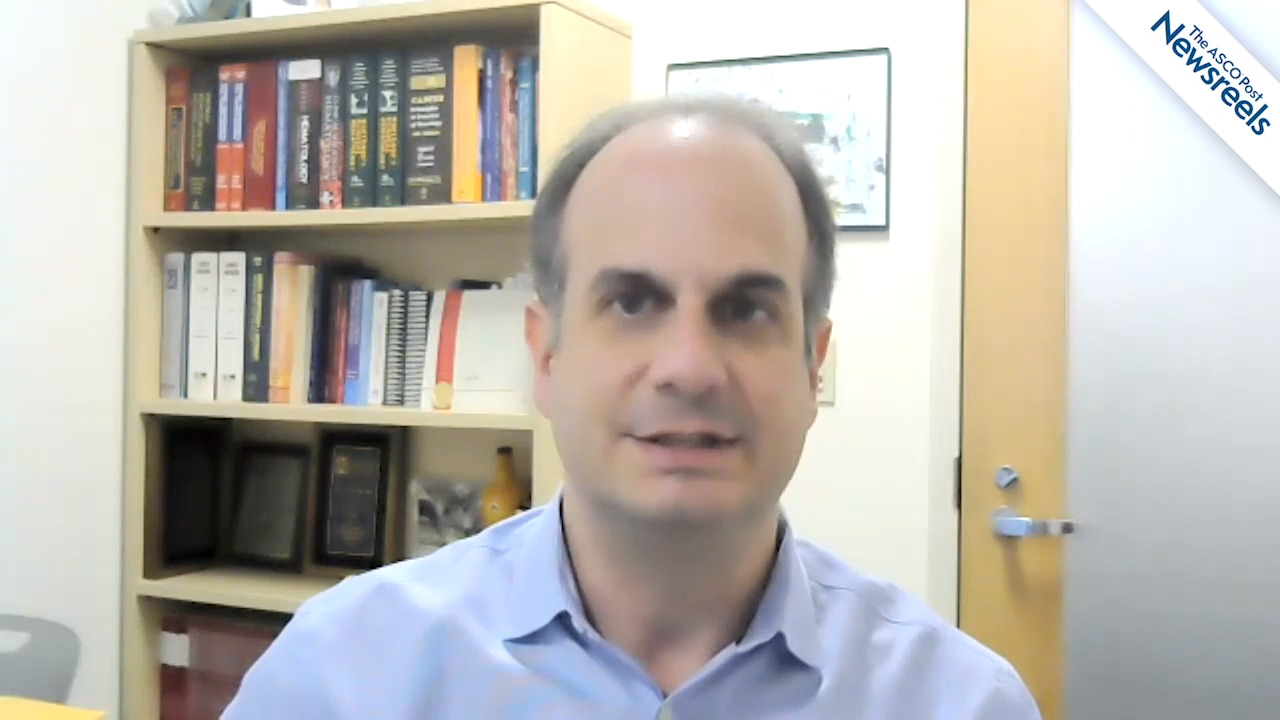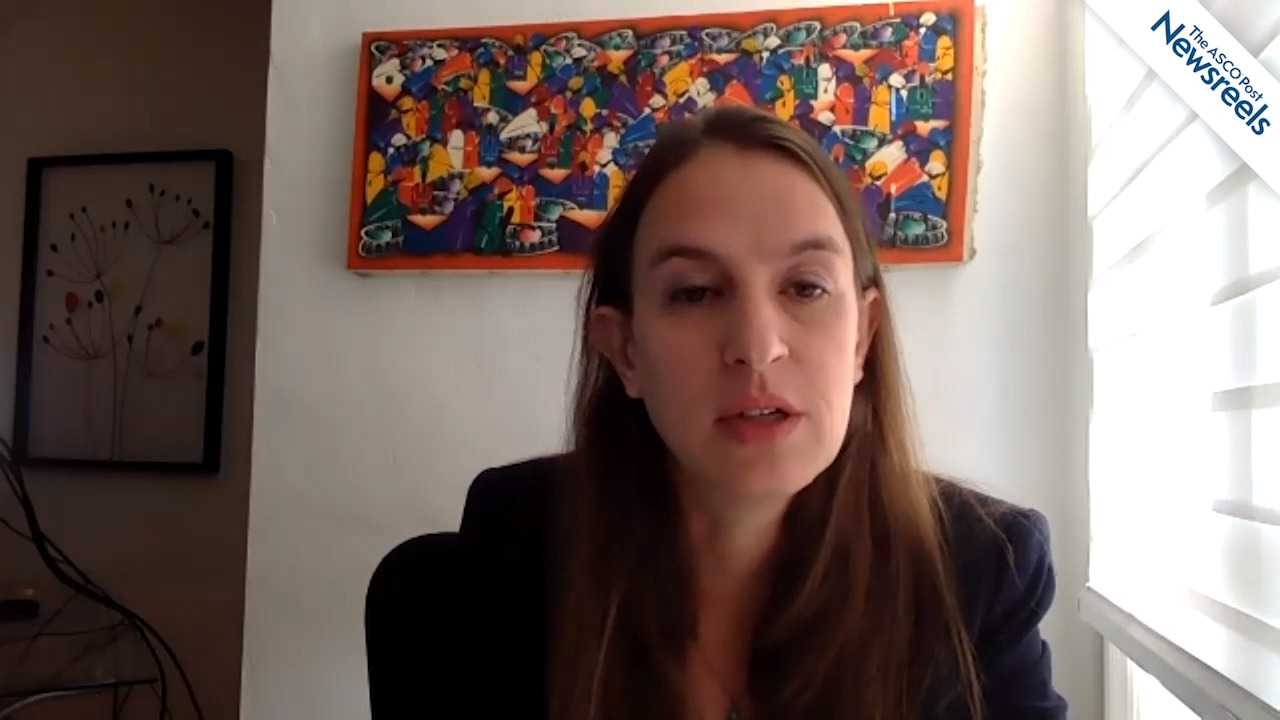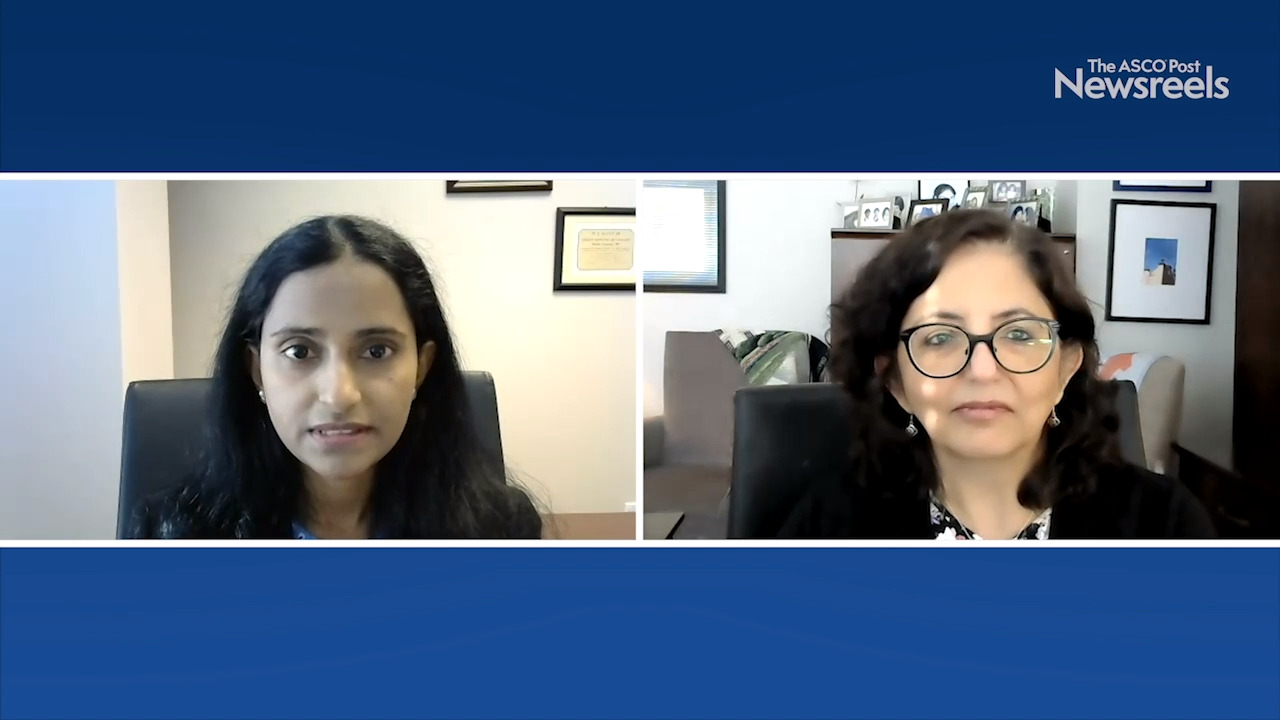Ann-Kathrin Eisfeld, MD, on AML in Black Patients: Racial Disparities in Survival Outcomes
2020 ASH Annual Meeting & Exposition
Ann-Kathrin Eisfeld, MD, of The Ohio State University Comprehensive Cancer Center, discusses SEER data showing that patients with acute myeloid leukemia who are Black and younger than age 60 may have poor survival outcomes, a disparity that should be addressed and further studied to establish molecular risk profiles (Abstract 6).
The ASCO Post Staff
Corey Cutler, MD, MPH, of Dana-Farber Cancer Institute, discusses results from a multicenter trial that compared reduced-intensity allogeneic hematopoietic cell transplantation to hypomethylating therapy or best supportive care in patients aged 50 to 75 with advanced myelodysplastic syndromes (Abstract 75).
The ASCO Post Staff
Steven M. Horwitz, MD, of Memorial Sloan Kettering Cancer Center, discusses phase II data from the Primo trial, which support continued evaluation of duvelisib as a treatment option for relapsed or refractory peripheral T-cell lymphoma due to consistent response rates (Abstract 44).
The ASCO Post Staff
Tycel J. Phillips, MD, of the University of Michigan Rogel Cancer Center, discusses phase II data from the CITADEL-204 study, showing that patients with relapsed or refractory marginal zone lymphoma who were not previously treated with a Bruton’s tyrosine kinase inhibitor achieved rapid and durable responses with single-agent parsaclisib. Comparable results were also observed in patients with nodal, extranodal, or splenic disease (Abstract 338).
The ASCO Post Staff
Lena E. Winestone, MD, MSHP, of the University of California, San Francisco and Benioff Children’s Hospital, reviews different aspects of bias in treatment delivery, including patient selection for clinical trials; racial and ethnic disparities in survival for indolent non-Hodgkin diffuse large B-cell lymphomas; and end-of-life hospitalization of patients with multiple myeloma, as well as outcome disparities (Abstracts 207-212).
The ASCO Post Staff
Smita Bhatia, MD, MPH, and Radhika Gangaraju, MD, both of the Institute for Cancer Outcomes and Survivorship, University of Alabama at Birmingham, discuss findings that showed survivors of bone marrow transplants are at a 7- to 12-fold higher risk of coronary heart disease than a sibling comparison group. They recommend aggressive management of cardiovascular risk factors to prevent morbidity from heart disease in this patient population (Abstract 73).





